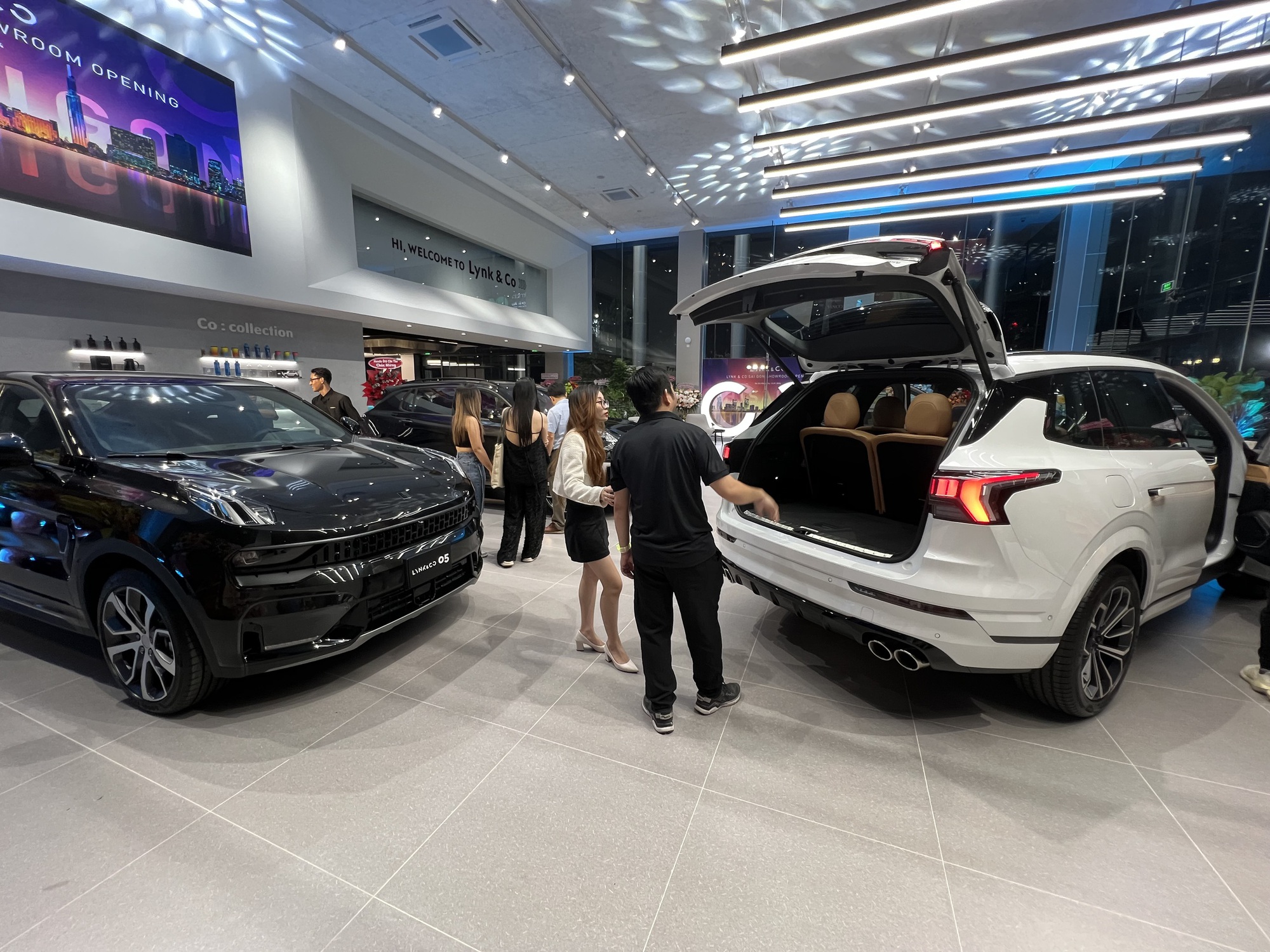In recent times, the position of Chinese cars in the Vietnamese market has been improving as many car brands continuously introduce new products.
Continuous “attacks” on the Vietnamese market
At the end of January 2024, the Chinese car brand Chery officially introduced the Omoda C5 model in the B-segment SUV segment with two deluxe and luxury versions, using a 1.5L turbo engine, with a selling price below 700 million VND / unit. This is a competitive model with the Kia Seltos, Hyundai Creta, and Honda HR-V.
On January 13, Lynk & Co Automobile International Sales Co.LtD and GreenLynk Automotives Joint Stock Company launched the Lynk & Co car brand in Ho Chi Minh City, after opening a showroom in Hanoi in December 2023. The company introduced a trio of SUVs including the Lynk & Co 01 with a price of 999 million VND / unit and the Lynk & Co 05, 09 with a selling price of 1.599 billion VND / unit.
Earlier, in August 2023, the Haval brand launched the hybrid H6 model with a price of 986 million VND / unit in Vietnam. Although in the last 4 months of 2023, the company only sold 200 units, achieving 40% of the set target, they are still confident that they will win Vietnamese consumers’ hearts thanks to its fuel-saving ability of up to 70%. According to the company’s introduction, the H6 model operates entirely on electricity at speeds from 0 – 35 km/h, operates on a mechanism of both petrol and electricity at speeds above 35 to over 65 km/h, and switches back to using electricity when the car runs at speeds of 80 – 100 km/h.

Chinese car brands are trying various ways to conquer the Vietnamese market
In the coming year, Haval plans to expand its network with an additional 25 dealerships in Vietnam, bringing the total to 45 dealerships. At the same time, the company will introduce 2 other models, Jolion and Tank 300.
A British car brand that has been acquired by SAIC Motor (China) is also successful in exploring the Vietnamese market, which is MG, with models such as MG5, MG ZS, and RX5. In addition, the market also sees the presence of many other Chinese car models distributed by Kylin-GX668 such as the Beijing X7 from the BAIC Group or the H9 and E-HS9 from the Hongqi brand.
Notably, pure electric cars from China have also been introduced in the Vietnamese market, such as the versatile models 7X and 7X-E from the Haima brand. Haima also announced that it will open dealerships in Hanoi and Ho Chi Minh City as soon as possible. The Chinese brand Chery plans to launch more pure electric car models, such as the Omoda C5 EV, which can travel 450 km per charge. Similarly, MG also plans to bring to the Vietnamese market several pure electric products this year.
Improving the quality of cars exported to Vietnam
Mr. Tran Nam Thang, Deputy General Director of SAIC Motor Vietnam Co., said that customers are paying more attention to the MG brand, so the sales growth of the brand is quite good. Many customers have feedback that the company has good after-sales service policies and affordable spare parts prices. According to Mr. Thang, the domestic automobile market still has a lot of room for development, so it is understandable why Chinese car companies are actively bringing their products to Vietnam.
According to Mr. Vu Van Thuong, Director of Haval Thanh An Sai Gon Joint Stock Company – the distributor of Haval cars, the quality of Chinese cars has improved thanks to the use of various technologies. Mr. Thuong predicts that in the near future, many Chinese car companies will continue to enter the Vietnamese market, creating a new wind and increasing competition. “Although the Haval car has a price of nearly 1 billion VND / unit, it is equipped with technologies comparable to high-end cars priced at around 2 billion VND / unit. Most Chinese car companies are offering high-priced products with stable quality to regain customers’ trust,” added Mr. Thuong.
Mr. Tran Ngoc Phuc, an automotive expert, believes that with the global trend of transitioning to electric vehicles, Chinese car companies have to adapt to meet consumer demands. However, there will still be many factories that cannot convert and have to look for potential petrol-consuming markets, including Vietnam. He also predicted that there will be many car brands from neighboring countries pouring into the Vietnamese market. Mr. Phuc further explained that China has a strong policy of transitioning from petrol to electric vehicles, so if car companies do not conquer new markets soon, they will have no “living space”.
Many automotive experts believe that during this period, Chinese car brands have the potential to succeed in Vietnam. In the past, Chinese car companies mainly distributed their cars through intermediate channels, but now, they are cooperating with Vietnamese partners to build their brands, open official dealerships, and take care of customers, resulting in better business performance.
Still skeptical
Automotive experts still have some doubts about the success of Chinese cars in the Vietnamese market, especially fuel combustion engines.
Automotive expert Nguyen Minh Dong said that it is still unclear about the quality of Chinese fuel combustion cars, but their electric vehicle models are very competitive in the European and American markets. As a result, Vietnamese consumers will gradually have a different view of car products from the world’s largest factory.
“Although the quality of Chinese cars has been proven in the world market, it will take about 5 to 10 more years for the Vietnamese market to fully accept them,” Mr. Dong commented.
China among the leading car suppliers for Vietnam
According to statistics from the General Department of Customs, in January 2024, the number of completely built-up cars of all kinds declared for customs import declaration decreased by 9.1% compared to December 2023. Accordingly, in the first month of this year, only 6,955 completely built-up cars were imported. It is noteworthy that Indonesia ranks first among the car suppliers to Vietnam with 2,647 units, China has jumped to second place with 1,987 units, and Thailand has dropped to third place with 1,858 units.
In February 2024, the import of Chinese cars decreased to 1,000 units, returning to third place, giving the second place back to Thailand with 3,788 units. Indonesia still holds the top position with 4,441 cars imported from this country to Vietnam.











































